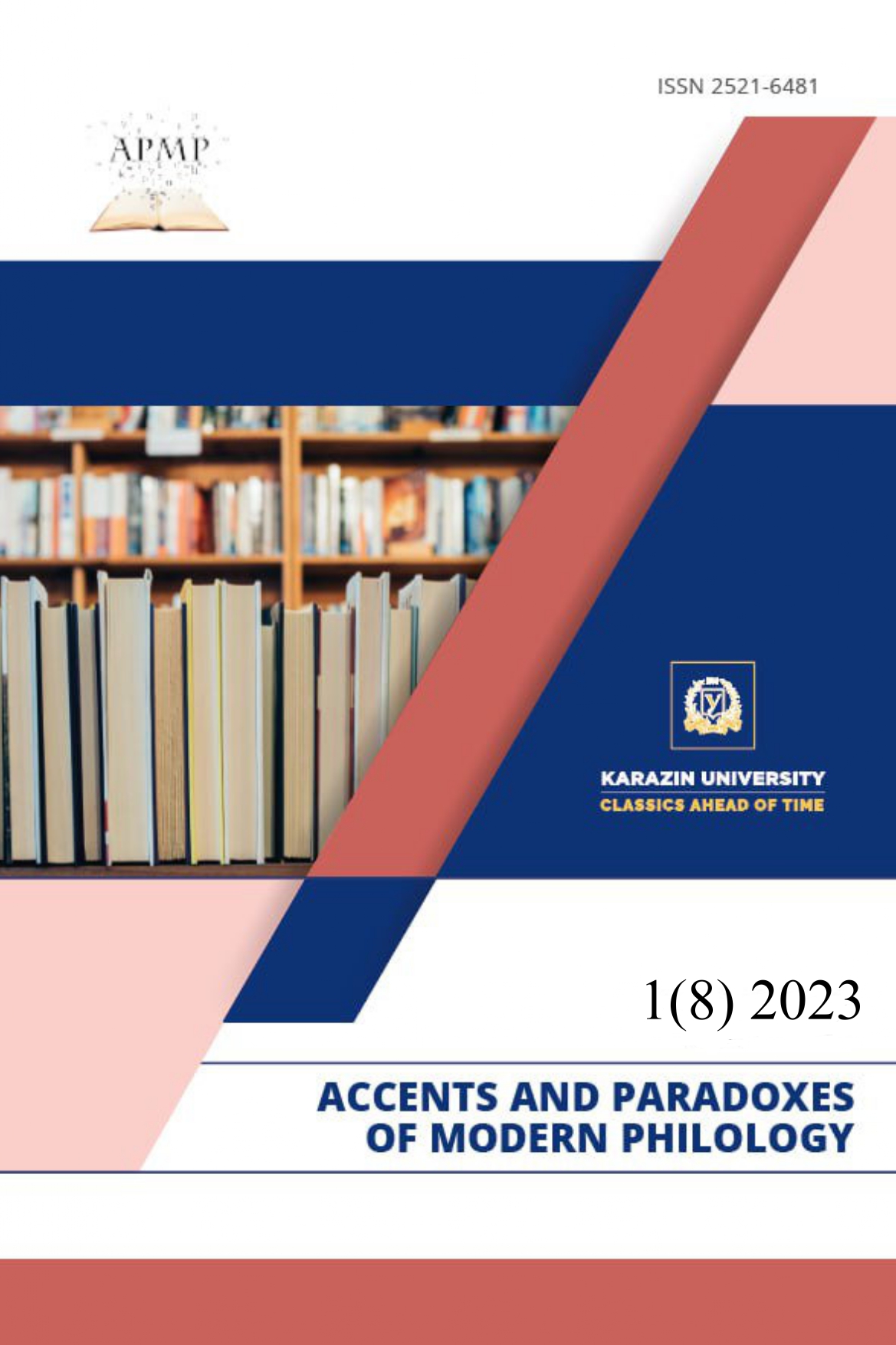MULTIMEDIA AS A FACTOR OF INFLUENCE ON THE FORMATION OF PROFESSIONAL ORIENTATION OF FUTURE PHILOLOGISTS AND TRANSLATORS
Abstract
A multimedia as one of the influencing aspects of the professional orientation of future philologists-translators is considered in the article. Analyzing modern scientific literature
concerning a given matter allows us to state the existence of different points of view on the interpretation regarding the phenomenon of professional orientation: as a part of the
individual's orientation, its specific form; as a defining dynamic component of the general orientation. The professional orientation of an individual is being understood as a specific aspect of the general orientation, as a professional self-determination of an individual, and as a system of internal motives. The professional orientation of philologists-translators can be examined through the perspective of various factors, since the practice of forming professional orientation requires identifying the most effective measures that allow to achieve established goals, and therefore the necessity to refer to modern tools that optimize the educational process occurs. A functional range of multimedia resources allows us to conclude that the use of multimedia tools for the development of professional orientation of translators and interpreters is highly beneficial. Therefore, the modern education system should be changed in order to meet the new requirements of the current job market. One of the possible approaches to accelerate this trend is to form students' professional orientation taking into consideration the specifics of their occupation. The specifics of philologists-translators' work is defined as translation, which is a type of language mediation that determines the dominance of the communicative and intermediary function. A professional philologist-translator is a mediator of communication who conveys initial information by creating an equivalent communicative text in another language. Appropriate use of multimedia technologies determines the choice of the tools for the forming of professional orientation. Using multimedia resources ensures accurate decoding and transcoding of messages aimed at the consumer of information and enables to analyze information accurately.




